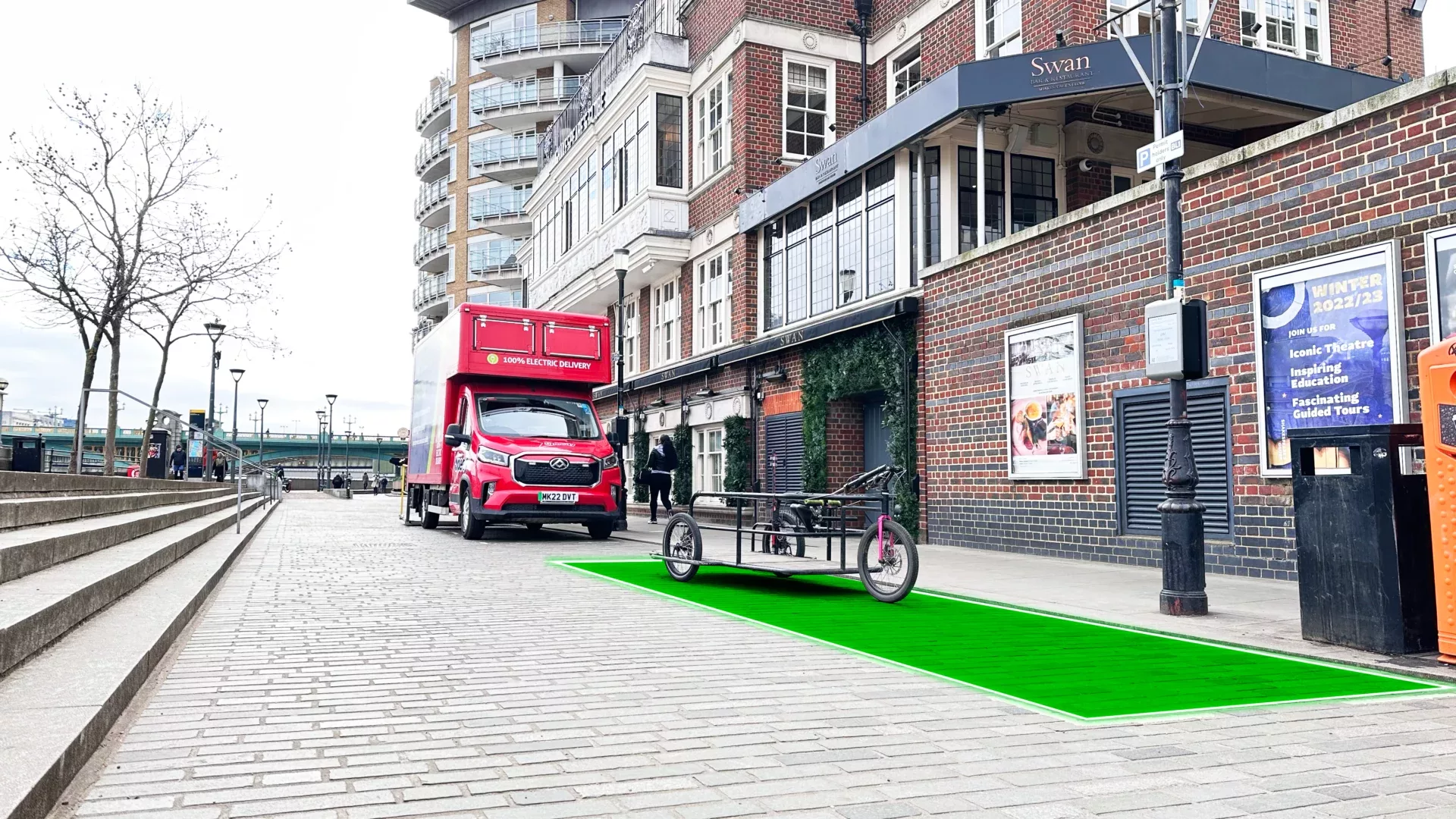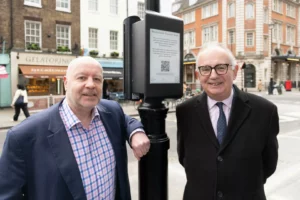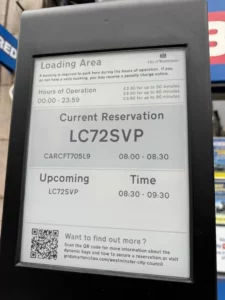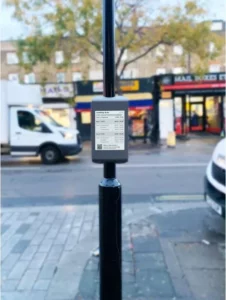London’s first river-road scheme which included dedicated space at the kerbside for cross-docking freight has concluded, with the company behind it publishing its conclusions.
Two bookable bays were created on Bankside adjacent to Bankside Pier for the use of freight, servicing and delivery drivers, using a kerbside management solution delivered by Grid Smarter Cities.
Following the completion of the project, the evaluation report makes a series of practical, evidence-based recommendations. The research, led by transport consultancy Steer, lays out an action plan for future river-road cross-docking freight deployments in London and other major cities, providing a blueprint for how cross-docking can be used to enable sustainable city growth.
The key recommendations for the implementation of a successful river-road cross-docking freight scheme are:
1. Policy and planning: Strong policy & planning, such as safeguarding of wharves, is required. This together with long-term strategic coordination will be required to enable river freight to scale.
2. Managing River Freight Locations: Existing low levels of light river freight can be accommodated on passenger piers. To successfully grow & scale river freight solutions, larger and better managed spaces will be required.
3. Operator Perspective: Operators found the booking and safety of having dedicated cross-docking spaces to be useful. If used in combination with recommendations 1 & 2 it would be easier for the operators to invest and expand their river operations.
4. Local Monitoring and Engagement: Monitoring all transport modes to provide data and accurately attribute any peaks in noise or air quality breaches was crucial. Showcasing that data can be used and shared to track cross-docking freight activity and new delivery modes did not negatively impact the local community.
Impact on Urban Health funded this project to explore how a multimodal approach to freight could support a cleaner urban environment for the communities of London. Grid worked on this project alongside a mix of multidisciplinary stakeholders and in association with Southwark Council.
Ben Pearce, Portfolio Manager at Impact on Urban Health said:“Air pollution devastates people’s health in urban areas like London. Freight – the movement of goods across cities – is a major contributor to air pollution.
“This project was designed to test whether we can be making better use of the river for deliveries, reducing the need for polluting vans. The results are practical, evidence-based recommendations to enable local government, freight operators and landowners to scale up the use of river freight.”
Laura Jacklin, Commercial Development at Grid Smarter Cities added: “Kerb-Dock has shown the necessity of managing space on cross docking activities to sustainably scale up river freight. Technology has a part to play where platforms such as Kerb can help to showcase the real-time information on deliveries at spaces where cross docking is important.
“The biggest success of the project has been getting all the stakeholders who are involved in this process into the room to discuss how it can be done together.“
Grid Smarter Cities is currently running another kerbside booking trial, and 18 month project in Westminster involving two bays for use by electric delivery vehicles.
Read the executive summary here and full report here.
(Picture – Grid Smarter Cities)





















